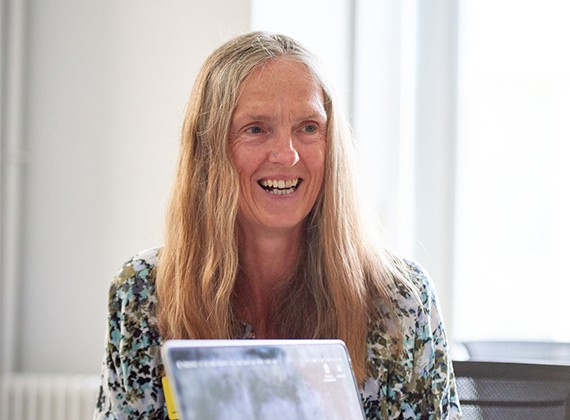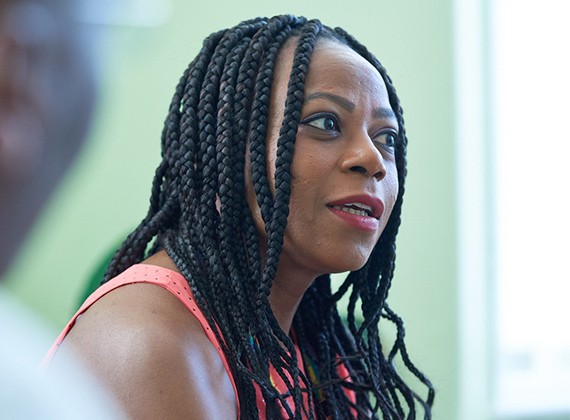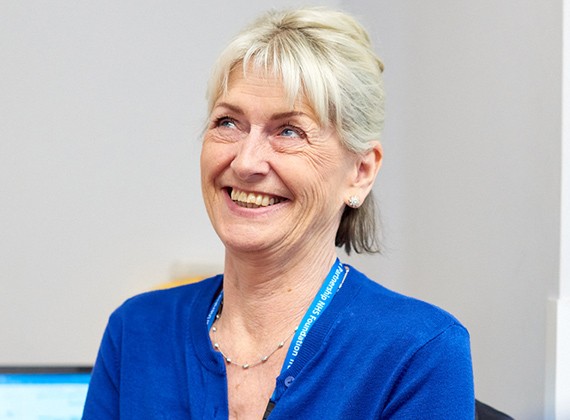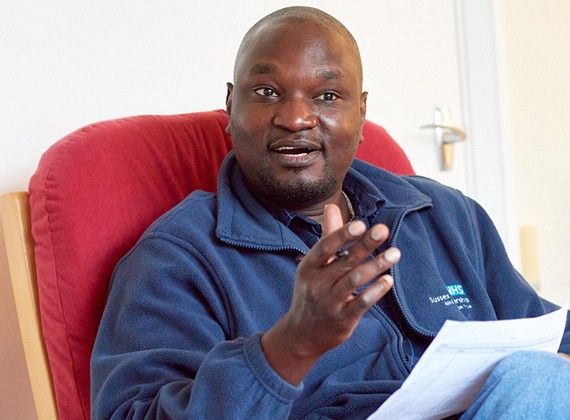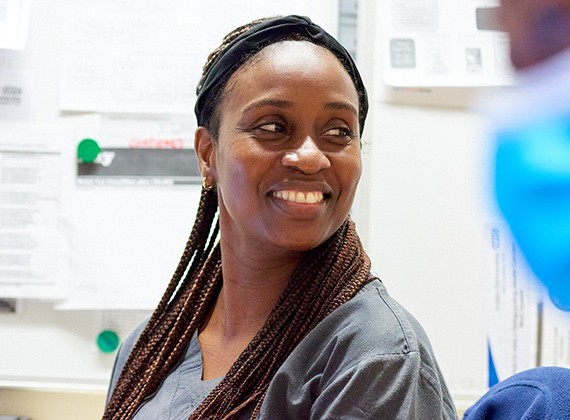

Mental Health Support Team Research Clinic
The MHST Research Clinic, funded by Sussex Partnership NHS Foundation Trust, aims to evaluate the new roll out of MHSTs. It aims to evaluate the outcomes of the service, understanding the effectiveness of the service and its new workforce and the success of the three core functions.
The clinic is not a referral-based service, as its primary purpose is to evaluate an existing service and to develop new interventions that can be integrated into its delivery. If you would like to provide input and ideas as part of the development of our research or help out with any of our ongoing research, please contact our clinic research assistant at spft.
Schools play an important role in the lives of young people. Most young people spend much of their time at school and attend the same setting over several years. This has led to the implementation of school-based mental health support teams (MHSTs) , a government-funded initiative designed to improve the mental health needs of children and young people (CYP) in educational settings, providing early support before issues become severe. They consist of senior clinicians, higher-level therapists, and Education Mental Health Practitioners (EMHPs), a new role being trained to deliver low-intensity interventions in school contexts.
MHSTs promote a "whole school approach" to mental health and wellbeing, focusing on prevention to ensure children and young people receive timely help, stay in education, and remain socially connected. MHSTs work alongside existing mental health provisions, offering additional resources across education settings to enhance support for children and young people.
For background on MHSTs’ origins and goals, see the 2017 government policy paper, Transforming Children and Young People’s Mental Health Provision.
- Deliver evidence-based interventions for common mental health and emotional wellbeing needs:
MHSTs provide low-intensity, CBT-informed interventions - including individual and group support – for children and young people (CYP) experiencing mild to moderate mental health difficulties such as anxiety, low mood, and behavioural difficulties, grounded in the latest evidence. They collaborate closely with schools, families, and other professionals to strengthen early intervention, prevent escalation, and empower children and young people (CYP) through skills-building and accessible care.
- Support senior mental health leads in education settings to develop and introduce their whole-school or whole-college approach to mental health and emotional wellbeing: MHSTs support schools to develop this based on the 8-areas model developed by Public Health England (Office for Health Improvement and Disparities & Department for Education, 2015) by promoting prevention through resilient environments, curriculum integration, and staff training; strengthening early identification and evidence-based support for pupils; and enabling specialist referrals while valuing student voice, diversity, and parent/carer collaboration.
- Provide timely advice to staff and liaise with external specialist services so that children and young people can get the right support and remain in education: MHSTs provide timely guidance to school and college staff on mental health needs and when to involve external specialist services to help CYP to get the right support and stay in education.
The clinic aims to support the development of the evidence base available by focusing on researching low-intensity mental health interventions for students in Schools and Colleges. We work with collaborators to develop and implement new interventions to test their applicability and feasibility in supporting young people presenting with various challenges.
The research clinic has been involved in developing new outcome measures to assess the effectiveness of the Whole School and College approach to well-being to support a systems-level understanding of how developing a psychologically informed environment can provide broader benefits for students and pupils alike. Through the development of evidence-based findings, the clinic aims to enhance the quality of mental health provision in educational settings and inform practices for future implementation.
In order for the clinic to meet its aims, it is important for us to work with others in key collaborations. Our key collaborations are commissioners, education staff, MHSTs (including EMHPs and other staff) and academics.
Single Session Intervention for Self-esteem
We are developing a single-session online intervention addressing low self-esteem, ‘Finding Solutions’. We have worked with young people to develop the intervention and have undertaken an initial feasibility study with approximately 80 pupils across two schools; early feedback is helping to shape the second iteration.
Research on Boys’ and Young Men’s Mental Health
Two projects are being undertaken. The first is titled "How do grandfathers describe their role in supporting the mental health of their male grandchildren? " This project is currently recruiting grandfathers. The second project looks to understand young men's experience of therapeutic support and intervention in schools from the Mental Health Support Teams.
Investigating Benefits to Lifestyle by Improving Sleep Strategies (iBLISS)
This is a pilot, feasibility randomised controlled trial funded by ESRC delivering brief CBT for Insomnia. This intervention aims to improve sleep and mood in adolescents and is being delivered in secondary schools.
The intervention includes three workshops covering topics such as sleep hygiene and sleep schedules. The study also aims to collect pilot data on clinical measures addressing dysfunctional sleep beliefs and pre-sleep arousal, to evaluate the mechanisms proposed to be changed by the intervention. The study is due to complete in Spring 2026.
Working on Worries Support and Intervention (WOWSI)
Online Support and Intervention (OSI) is a therapist-guided, online, parent-led intervention for child anxiety. The programme has shown to be effective when delivered by a therapist. This project aims to increase access to this programme for parents and improve the clinical and educational outcomes for CYP by training pastoral staff in schools to deliver the intervention
Phase 1 of the study has begun, with schools and parents participating in the intervention. Phase 2 will involve further recruitment and training of additional schools. The study is due to complete in Autumn 2026.
Whole School or College Approach (WSCA)
Together with West Sussex commissioners, the Charlie Waller Institute, and the University of Sussex, we have contributed to the development of outcome measures to assess the effectiveness of the Whole School Approach to well-being.
This work supports a systems-level understanding of how creating a psychologically informed environment can bring broader benefits for both students and pupils. Researchers enabled the development of a toolkit to assess outcomes and implementation for WSCA. You can explore the toolkit here
A collaboration with a Sussex Voices Clinic: ECHOES (Evaluating an intervention to support young people who hear voices)
This NIHR-funded research pilot aims to support young people who are distressed by hearing voices. A preliminary mixed-methods feasibility and accessibility study has finished data collection. This is a brief 4-session 1:1 coping intervention which has been adapted from work with adults (Hayward et al., 2021). The young people can nominate one person to attend a workshop to support them. This secondary school-based psychological intervention package is being delivered through Educational Mental Health Practitioners.
This project was developed through collaboration with individuals who have lived experience of hearing voices and researchers from Sussex Partnership NHS Foundation Trust, the Universities of Lancaster and Sussex, and senior members of Thought-full. For more information about Sussex Voices Clinic and ECHOES, click here.
A collaboration with the Oxford University: CO - CAT (Child Anxiety Treatment in the context of COVID-19)
Co-CAT project, a national study led by the University of Oxford and funded by the Department of Health and Social Care (DHSC)/UK Research and Innovation (UKRI) through the COVID-19 Rapid Response Initiative.
The project aimed to assess whether OSI (Online Support and Intervention for child anxiety) was as effective as the usual support services available for children experiencing anxiety during the COVID-19 pandemic. It involved families with children aged 5-12 who had been referred for anxiety treatment and provided parents with access to the OSI online programme to help them support their child’s mental health.
The MHST Research Clinic is co-led by Mary John (Senior Research Fellow, Consultant Clinical Psychologist, Sussex Partnership NHS Foundation Trust, and Associate Professor, Head of Discipline, Clinical and Health Psychology, University of Surrey), Clare Dixon (Clinical Supervisor for Thought-Full (West Sussex Mental Health Support Teams in Schools) Sussex Partnership NHS Foundation Trust), Faith Orchard (Associate Professor, University of East Anglia) and Kathryn Lester (Associate Professor, University of Sussex).
Recent and upcoming publications
Hayward, M., John, M., Parry, S., Bibby-Jones, A-M., Orchard, F., Malpass, F., Dixon, C., Naito, A. (2025).
Support for young people who are distressed by hearing voices: Protocol for an uncontrolled feasibility evaluation of a psychological intervention package delivered within secondary schools (the ECHOES study). Pilot and Feasibility Studies.
Robinson, E., Chapman, C., Orchard, F., Dixon, C., & John, M. (2025).
Characteristics of young people referred for treatment of depression and anxiety in a school-based mental health service. The British journal of clinical psychology, 10.1111/bjc.12526.
Robinson, E., Ferrell, A., Macdonald, I., John, M., Randell, B., Procter, T., & Banerjee, R. (2023).
Evaluating the impact of the whole school and college approach to mental health and wellbeing: The development and pilot of the WSCA outcome self-assessment tool [Technical report]. Sussex Partnership NHS Foundation Trust.
Bebbington, N., Robinson, E., Orchard, F., Chapman, C., Dixon, C. & John, M. (2025).
Exploring the efficacy of cognitive behavioural informed interventions delivered within a school-based Mental Health Support Team.
Robinson, E., Chapman, C., Orchard, F., Dixon, C., & John, M. (Under review).
Early Psychotherapeutic Interventions for Post-traumatic Stress Responses in Children and Adolescents: A Scoping Review.
Email: spft.
Address: Mental Health Support Team Research Clinic, Sussex Partnership NHS Foundation Trust, Research and Development, Sussex Education Centre, Mill View Hospital site, Nevill Avenue, Hove BN3 7HZ
